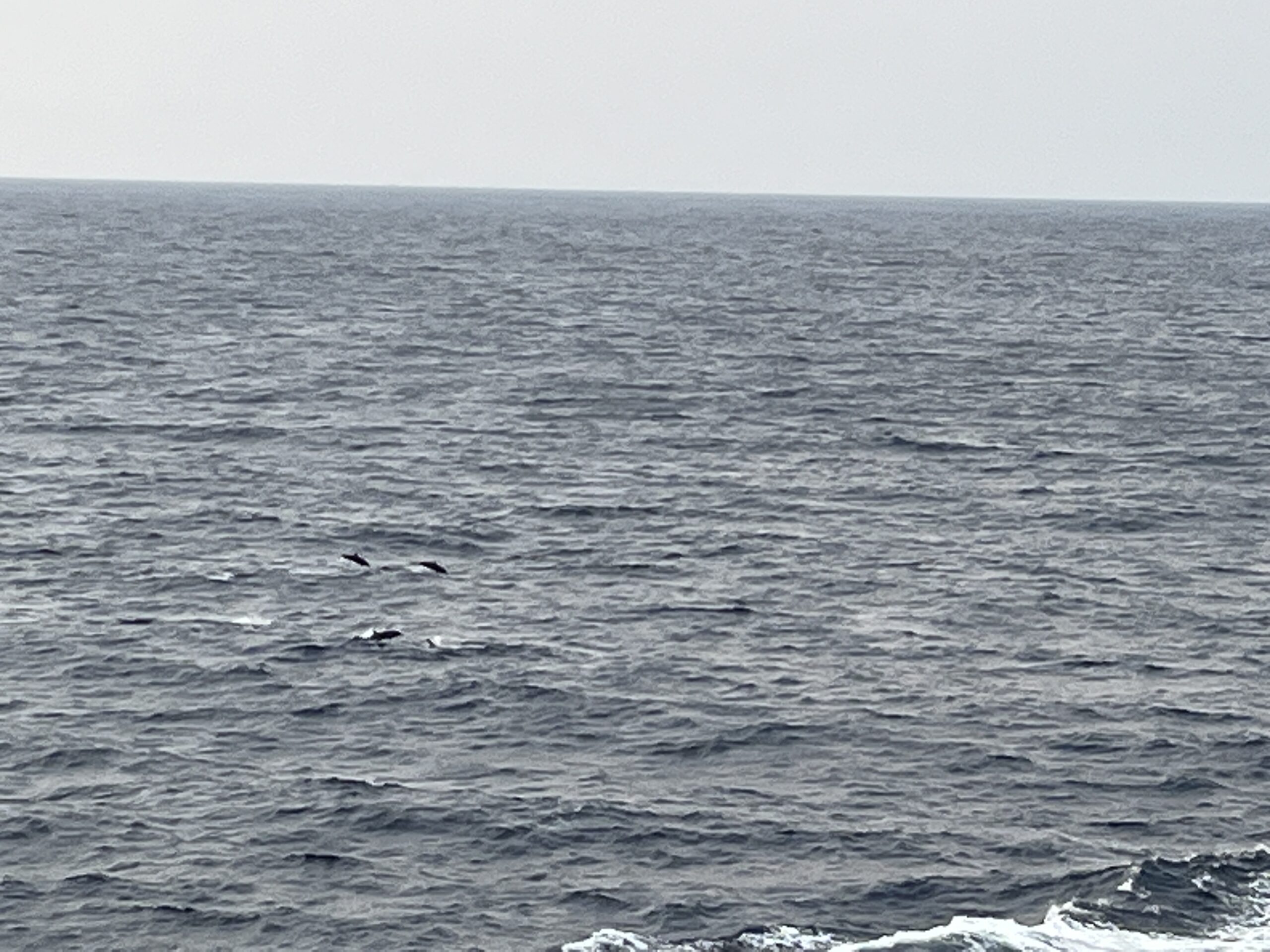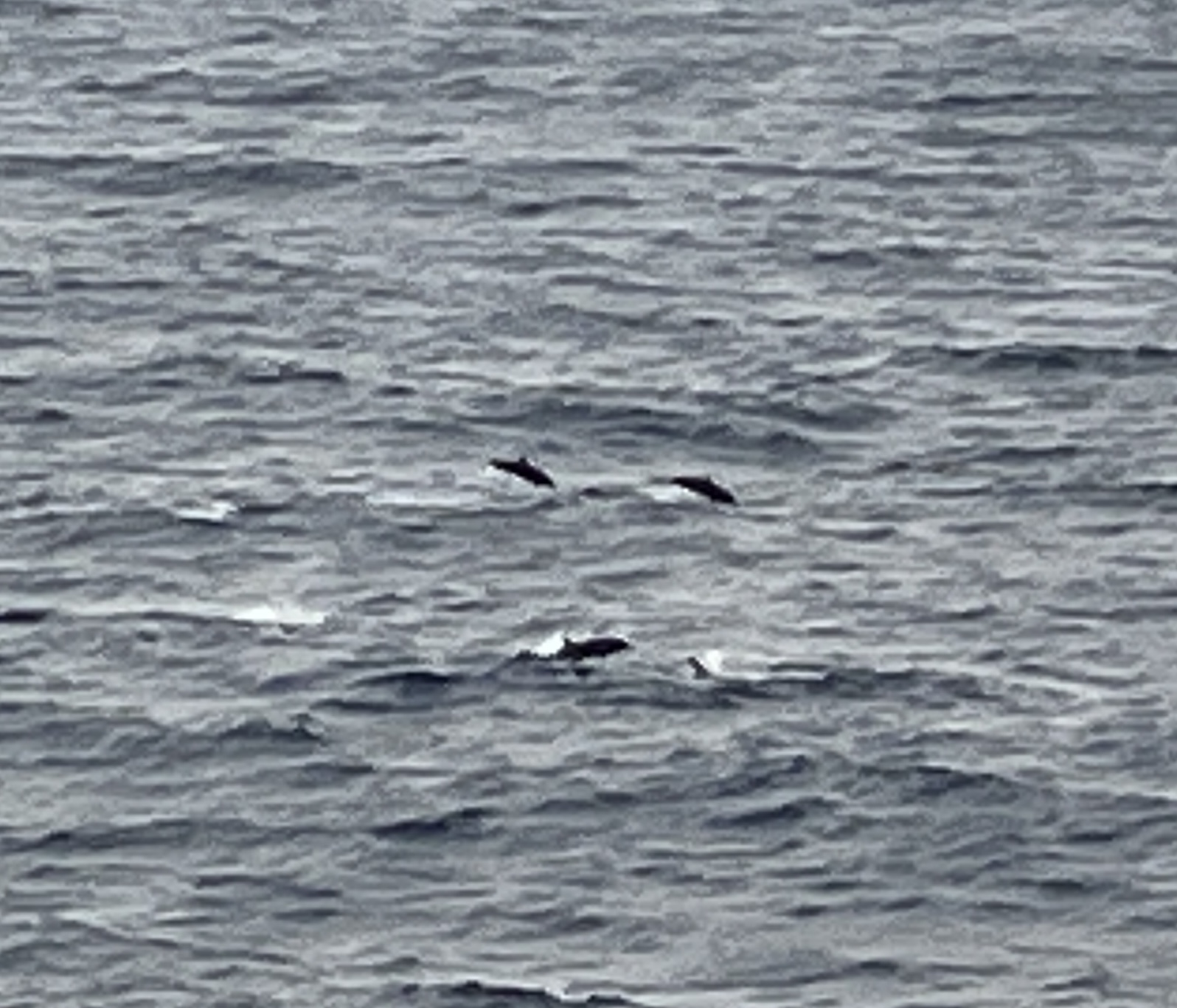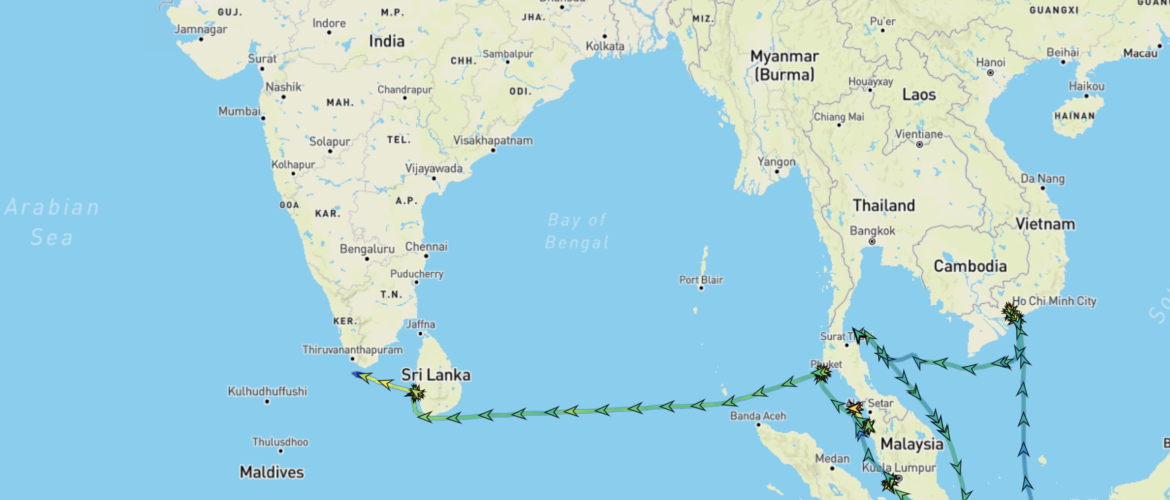Noon Report:
- Location: N 07° 48.57′, E 077° 03.12′
- Speed: 9 knots
- Course: 286º
- Weather: Partly Cloudy/High Overcast
- Temperature: 28 C; 82 F
- Wind: NW 11 knots; 13 mph
- Sea: 3 ft swells
Mostly a normal sea day. We’re crossing below the tip of India and heading up the west side to our first Indian port, Cochin.
Following our normal morning routine the 9:30 lecture was “History of India” – a brief look at the development of what is now the countries of India, Pakistan, and Bangladesh.
At 11:00 “Kerala – From Caste-ridden to Classless Society” looked at the state in the southwest corner of India and discussed how its flirtation with a communist system resulted in the relaxation of the Caste system so prevalent in other parts of India.
Mid-afternoon Cheryl was reading out on the veranda and called me out to check out a large pod of dolphins passing by. Of course, by the time I got there with a camera they were mostly gone but I did manage to catch a few:


There was a choir rehearsal at 3:00 and a 6:30 lecture on “A Long Way from Windsor, Queen Elizabeth’s Asia-Pacific Tours.” – a look at the queen’s history of frequent travel to this region (she made 271 foreign trips during her reign)!
Following Dinner BBB saw us improve some (11 of 19) but still out of the running.
Then it was back to the room to work on BLOGs and prepare for adventures tomorrow.
All in all a pretty restful day. From what they tell us we’ll appreciate it.
The only guarantee they make is that one way or another India will change us.
Could be for the better or not. We’ll just have to wait and see.
Nite all, R
Cheryl’s Factoids:
- Ancient civilizations were in India from 2600 BC. Genghis Khan made several incursions into the Indian subcontinent but didn’t conquer it as it was not a unified nation. The first various empires in India were run by rich Mughals from 1526-1707 (Taj Mahal was built from 1632-1647). The Mughals ran multi-cultural and multi-ethnic areas so were religiously tolerant. The Portuguese came first, then the Dutch, and finally the British traders along with a lot of Mughal rivalry. The British East India company helped the rivals break the empires apart, grew stronger amid the breakups, and finally took over colonial rule of mainly coastal trading areas. The Sepoy Revolt in 1857-1859 took place because they were angry at the British East India company for their low wages, and the British did not respect their religion. Sepoys were asked to open the new Enfield Rifle cartridges with their teeth, which were believed to be lubricated with grease containing a mixture of of cow’s and pig’s flesh which therefore was religiously impure for the Muslims and Hindus. After this, BEI was removed and India was directly ruled as a crown colony. Gandhi assumed leadership of the Indian National Congress in 1921 trying to expand rights to the Indian people and was imprisoned many times. In early 1940s, the Muslims demanded a separate homeland within India. In 1947 Britain granted independence but India was divided into 3 parts, Muslim people to move to West Pakistan and East Pakistan, and Hindus to move to central India. During all the moving, much religious violence broke out, Gandhi was assassinated. East Pakistan wound up becoming Bangladesh.
- Now with the rising tide of extremism all over the world, the current Prime Minister of India is supporting a radical party with fascist roots that wants India to become an “Only Hindu” nation and get rid of everybody who is not Hindu (and in Sri Lanka extremist monks are pushing to have their island be “Only Buddhist”).
- Cochin, in the Kerala district, elected a communist type of government. The communists removed the large feudal landowners (giving the land to the farmers), supported independence from Great Britain, and tried to do away with the caste system. The communist-leaning party still remains as a strong voting block to get better working conditions. The Kerala district now has the best social indicators of all India (i.e. gender equality, life expectance, lowest infant mortality). Trash and air pollution (we are wearing face masks) are problems all over India as their population will shortly be exceeding China’s when it has a much smaller country.
